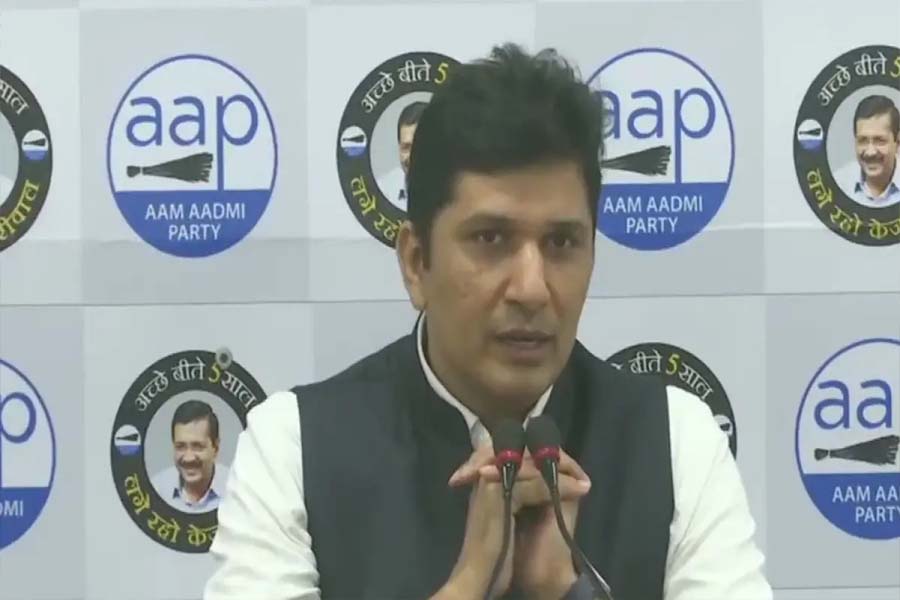
Bengaluru: In a recent traumatic experience, a Bengaluru businessman found bundles of fake currency notes that allegedly contained real Rs 500 notes. The incident, which left him visibly upset and sweating on opening the bundles bearing the bank’s stamp, underlines the growing concern over the circulation of counterfeit money in the region. According to the police, Divyansh Sanklecha, owner of a furniture outlet in Indiranagar, needed an urgent sum of Rs 30 lakh. Unable to travel to Delhi himself, he sought the help of his relative Jyoti Babu, who lives in Delhi. Sanklecha’s father took it upon himself to coordinate with relatives and friends to raise the necessary funds. On July 2, Sanklecha’s father received a call from a man who introduced himself as Ramesh. Claiming to be referred by mutual acquaintances, Ramesh assured that his associates were ready to collect Rs 30 lakh from Babu in Delhi. He further promised that another associate named Suresh would deliver the money to them in Bengaluru upon receipt of the money. Sanklecha allegedly passed on Babu’s details to Ramesh. On July 3, around 2 am, Suresh contacted him and confirmed that Rs 30 lakh was ready and directed him to withdraw the cash at Marathahalli. On reaching the designated location, Suresh and one of his accomplices boarded Sanklecha’s car and handed him bundles of Rs 500 notes, each bundle bearing the bank’s seal.
After receiving the cash, Sanklecha contacted Babu to inform him about the transaction. On returning home and checking the bundles, he found that only the top and bottom notes in each bundle were genuine, while the rest were fake. Shocked by this realisation, he came to the sad conclusion that he had fallen prey to a scam. According to the report, this is not an isolated case. In recent weeks, there have been several cases where businessmen have fallen prey to similar scams involving fake currency worth about Rs 92 lakh. In two separate incidents, businessmen sought investments from their acquaintances, but received bundles of fake notes in return. Similar frauds have been reported from Kolar in Karnataka, where fake notes were found in the possession of another businessman. In response to these horrific incidents, the Central Crime Branch (CCB) has launched an investigation. Officials suspect that the culprits may have acquired the fake notes through illegal channels such as hawala. The investigation is ongoing, as the affected businessmen seek justice and efforts to curb the circulation of fake notes in the region intensify. Prem Kumar Jain, a textile businessman from Chickpet, has also filed a similar complaint. Jain told officials that he needed Rs 25 lakh and approached his friend Bipin for assistance. Bipin assured Jain that his associate Mahi would arrange the funds from Delhi. Jain received a call from a man named Jayesh, who claimed he was able to ferry the large sum of money to Bengaluru. Jain then gave Mahi’s details to Jayesh. On June 14, Jain met Jayesh near a temple in Nagarathpet, where he received bundles of Rs 500 notes. Jain later found out that only the top and bottom two notes in each bundle were genuine, while the rest were fake. When he tried to contact Jayesh again, Jain found that his phone was switched off.
A senior police officer said both the incidents were being investigated. “We have received clues about the persons involved in these incidents and some of them are currently being questioned,” he said. Here are some guidelines to prevent fraud:
Choose banking channels instead of cash transactions whenever possible.
If a cash transaction is unavoidable, carefully check the notes on the receipt.
Avoid accepting money from unfamiliar persons; trust only reputable sources.
Maintain evidence of transactions, such as recording them on video.
Inform the local police immediately if a transaction raises suspicion.





